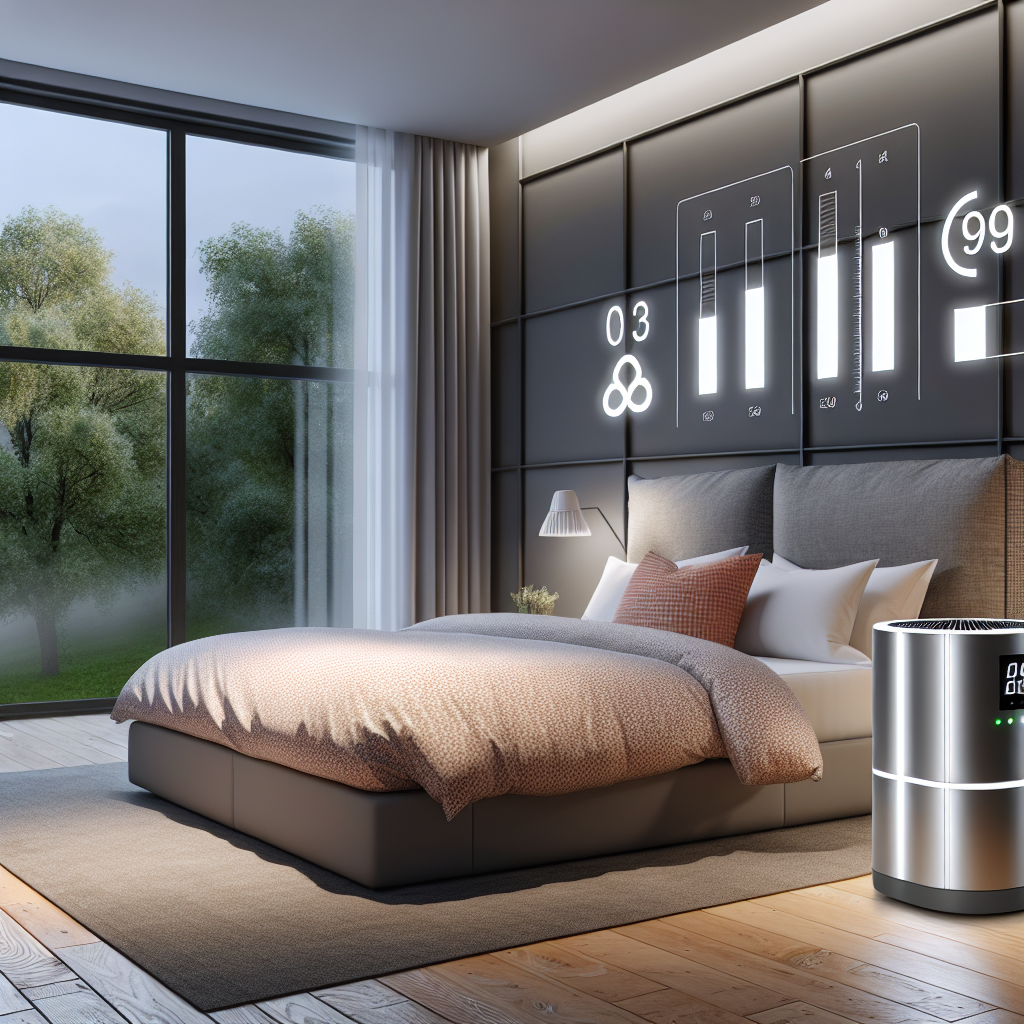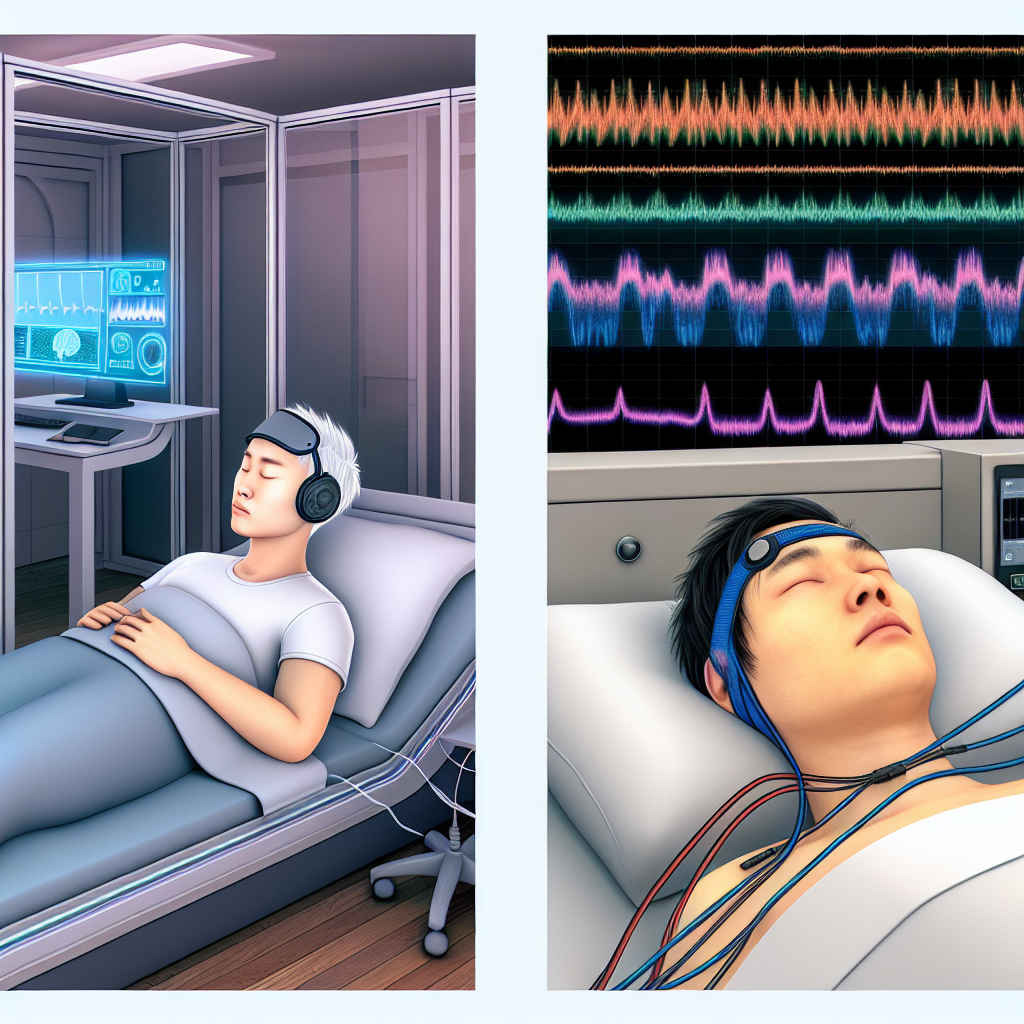#
Bedroom Air Quality Optimization Systems: The Key to Restorative Sleep
##
Introduction: Why Indoor Air Quality Matters for Better Sleep
Getting a good night’s sleep is essential for physical health, mental clarity, and overall well-being. While factors like mattress quality, sleep schedules, and noise levels often take center stage, one critical aspect is frequently overlooked—indoor air quality (IAQ). Poor air quality can negatively affect sleep, triggering allergies, respiratory problems, and discomfort that disrupt restorative sleep cycles.
The Environmental Protection Agency (EPA) states that indoor air can be two to five times more polluted than outdoor air due to dust, pet dander, mold, volatile organic compounds (VOCs), and other airborne irritants [(EPA, 2023)](https://www.epa.gov/indoor-air-quality-iaq). This is particularly concerning in bedrooms, where we spend nearly one-third of our lives sleeping. Optimizing bedroom air quality through appropriate filtration, ventilation, and purification systems can significantly enhance both sleep duration and quality.
Recent research highlights a direct correlation between air quality and sleep efficiency. A 2019 study published in *The Science of the Total Environment* observed that increased exposure to airborne pollutants was linked to frequent nighttime awakenings and reduced sleep efficiency [(Münzel et al., 2019)](https://www.sciencedirect.com/science/article/abs/pii/S0048969719323491). Another study published in *Environmental Research* found that exposure to high particulate matter (PM2.5) concentrations was associated with shortened sleep duration and decreased deep sleep stages [(Heyes et al., 2020)](https://www.sciencedirect.com/science/article/abs/pii/S0013935120308869).
Effective bedroom air quality optimization systems can combat these disturbances, leading to better respiratory health, fewer nighttime disruptions, and enhanced overall sleep quality. This article will explore advanced air purification systems, ventilation strategies, and humidity control solutions to create a sleep-friendly environment for all ages.
##
Top Features of a Bedroom Air Quality Optimization System
Scientific advancements in air quality control have led to the development of highly efficient air purification and optimization technologies. These systems include:
###
1. HEPA Filtration: Eliminating Allergens for Uninterrupted Sleep
HEPA (High-Efficiency Particulate Air) filters are designed to trap 99.97% of airborne particles as small as 0.3 microns, removing dust, pollen, pet dander, and bacteria.
A 2021 study published in *The Journal of Allergy and Clinical Immunology* confirmed that using HEPA air purifiers in bedrooms reduces allergens and enhances breathing comfort, leading to fewer sleep disruptions [(Sublett, 2021)](https://www.jacionline.org/article/S0091-6749(21)00009-0/fulltext).
###
2. Activated Carbon Filters: Reducing Harmful VOCs for Cleaner Air
Volatile organic compounds, often found in furniture, paints, and cleaning products, contribute to poor indoor air quality. Activated carbon filters absorb these chemicals, preventing inhalation-related respiratory irritations.
A 2020 study in *Building and Environment* highlighted how activated carbon filtration reduces VOC exposure and improves sleep quality [(Jiang et al., 2020)](https://www.sciencedirect.com/science/article/abs/pii/S0360132320300727).
###
3. Maintaining Optimal Humidity Levels for Better Sleep Comfort
Sleep experts recommend keeping humidity levels between 40% and 60% to minimize the growth of mold, dust mites, and bacteria. High humidity fosters microbial growth, while low humidity can dry out mucous membranes, leading to dry throat, congestion, and discomfort.
Using humidifiers or dehumidifiers can regulate moisture levels in the bedroom, preventing these disruptions [(Arundel et al., 1986)](https://www.sciencedirect.com/science/article/abs/pii/0160412086900313).
###
4. Natural Ventilation: Fresh Airflow for Deeper Sleep Cycles
Proper ventilation is crucial for replacing stale, polluted indoor air with fresh outdoor air. Studies suggest that well-ventilated bedrooms increase oxygen levels and remove airborne toxins, resulting in deeper sleep [(Cedeño Laurent et al., 2018)](https://www.nature.com/articles/s41467-018-02998-5).
Mechanical ventilation systems, such as HRV (Heat Recovery Ventilators) or ERV (Energy Recovery Ventilators), ensure continuous airflow without heat loss, keeping the air consistently fresh.
###
5. Smart Air Quality Monitors: Real-Time Tracking for Healthier Sleep
Modern smart air purifiers integrate air quality sensors to detect pollutants in real time and adjust filtration automatically. These IoT-enabled devices provide data-driven insights on air quality levels, ensuring a constantly optimized sleeping environment.
A 2023 technological review in *Indoor Air* stressed that smart air monitoring can predict and adapt to indoor pollution trends, maintaining better bedroom air quality [(Cheung et al., 2023)](https://onlinelibrary.wiley.com/doi/full/10.1111/ina.13017).
##
Conclusion: Sleep Better with Optimized Bedroom Air Quality
Optimizing bedroom air quality isn’t just about comfort—it’s a critical factor in promoting optimal sleep health. Scientific evidence emphasizes a strong link between air quality and sleep disturbances, making air optimization systems essential for individuals of all ages.
By integrating HEPA filtration, activated carbon filters, humidity control, ventilation improvements, and smart air quality monitors, individuals can create an ideal sleeping environment for deep, uninterrupted rest.
Children, adults, and the elderly all benefit tremendously from cleaner indoor air, as it reduces allergies, respiratory stress, and cognitive decline associated with poor sleep. Investing in effective air quality optimization solutions ensures a healthier, more restful, and productive life.
As ongoing research continues to highlight air pollution’s impact on sleep, proactive measures can help secure better sleep hygiene and long-term well-being for everyone.
**Concise Summary (100 words):**
Optimizing bedroom air quality is crucial for promoting restorative sleep. Poor indoor air quality can negatively impact sleep by triggering allergies, respiratory issues, and discomfort. Advanced air purification systems, including HEPA filtration, activated carbon filters, humidity control, and ventilation improvements, can create an ideal sleeping environment. Smart air quality monitors provide real-time data to maintain optimal conditions. By integrating these solutions, individuals can enjoy better respiratory health, fewer nighttime disruptions, and enhanced overall sleep quality, leading to improved long-term well-being.

Dominic E. is a passionate filmmaker navigating the exciting intersection of art and science. By day, he delves into the complexities of the human body as a full-time medical writer, meticulously translating intricate medical concepts into accessible and engaging narratives. By night, he explores the boundless realm of cinematic storytelling, crafting narratives that evoke emotion and challenge perspectives.
Film Student and Full-time Medical Writer for ContentVendor.com




